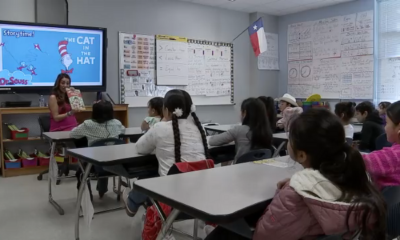Science
Study Reveals Insights into Future Teachers’ Research Competence

A recent study conducted at the University of Cologne has shed light on how research competence develops among prospective teachers during research-based learning. The findings indicate a significant increase in the cognitive domain of research competence, which encompasses knowledge and understanding of research processes, over the course of the semester. However, there is a slight decline in motivational aspects, such as enjoyment and perceived benefits of research.
The study assessed the changes in research competence among prospective teachers, focusing on both cognitive and affective-motivational domains. Over the semester, students exhibited a marked improvement in their cognitive skills related to research. This includes their ability to understand and navigate research methodologies, which are crucial for their future roles as educators.
Shifts in Student Motivation
While cognitive skills improved, the study revealed a noteworthy trend regarding student motivation. Specifically, aspects like enjoyment and interest in research saw a slight decrease throughout the semester. This decline raises questions about the long-term engagement of prospective teachers in research activities, as the affective-motivational domain is essential for fostering a positive attitude towards research.
Despite the drop in motivational factors, the study highlights that students who began with a higher level of motivation showed the most substantial growth in their cognitive domain. This suggests that initial enthusiasm plays a critical role in the development of research competence. The findings underscore the importance of nurturing motivation among students at the outset of their training.
The research emphasizes the need for educational institutions to balance cognitive development with strategies that maintain or enhance student motivation. Engaging teaching methods and opportunities for practical application can help sustain interest in research throughout the learning process.
Overall, the study from the University of Cologne provides valuable insights into the dynamics of research competence among future teachers. Understanding these trends can inform educational practices, ensuring that prospective educators are well-equipped with both the knowledge and passion necessary for effective teaching and research engagement.
-

 Science1 month ago
Science1 month agoNostradamus’ 2026 Predictions: Star Death and Dark Events Loom
-

 Technology2 months ago
Technology2 months agoOpenAI to Implement Age Verification for ChatGPT by December 2025
-

 Technology7 months ago
Technology7 months agoDiscover the Top 10 Calorie Counting Apps of 2025
-

 Health5 months ago
Health5 months agoBella Hadid Shares Health Update After Treatment for Lyme Disease
-

 Health5 months ago
Health5 months agoAnalysts Project Stronger Growth for Apple’s iPhone 17 Lineup
-

 Technology5 months ago
Technology5 months agoElectric Moto Influencer Surronster Arrested in Tijuana
-

 Education5 months ago
Education5 months agoHarvard Secures Court Victory Over Federal Funding Cuts
-

 Health5 months ago
Health5 months agoErin Bates Shares Recovery Update Following Sepsis Complications
-

 Technology7 months ago
Technology7 months agoMeta Initiates $60B AI Data Center Expansion, Starting in Ohio
-

 Technology6 months ago
Technology6 months agoDiscover How to Reverse Image Search Using ChatGPT Effortlessly
-

 Science4 months ago
Science4 months agoStarship V3 Set for 2026 Launch After Successful Final Test of Version 2
-

 Technology7 months ago
Technology7 months agoRecovering a Suspended TikTok Account: A Step-by-Step Guide

















